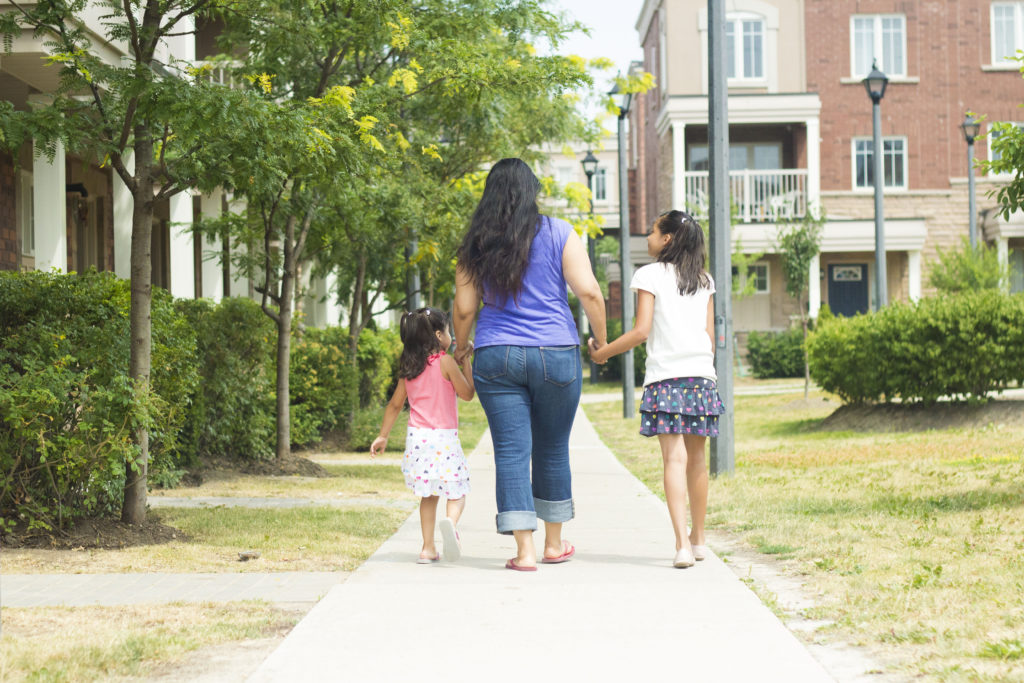Family Specialists are the linchpin of the Development Understanding and Legal Collaboration for Everyone (DULCE) intervention; without their work, families would not experience the transformative healthcare and approach to well-being cultivated by the program. DULCE is an innovative intervention based in the pediatric care setting. Clinical sites proactively address social determinants of health, promote the healthy development of infants from birth to six months of age, and provide support to their parents. DULCE does this by introducing a Family Specialist, trained in child development, relational practice, and concrete support problem solving, into the pediatric care team. Family Specialists attend well-child visits with medical providers and families. These Specialists get to know the families, provide peer support, and then work with the DULCE interdisciplinary team to connect families with resources and support. The DULCE interdisciplinary team is comprised of the following: the Family Specialist, a medical provider, a legal partner, an early childhood representative, a mental health clinician, a project lead, and a clinic administrator. The DULCE model is currently being replicated and evaluated at seven sites in six Early Childhood Learning and Innovation Network for Communities (EC-LINC) communities as a component of their local early childhood systems.
We at CSSP wanted to better tell the story and work of the DULCE Family Specialists. To achieve this goal, we interviewed and profiled each Family Specialist at different DULCE sites and wrote a profile based on the interview. The breadth of their work is wide, and the challenges they face can appear insurmountable. Thus, we want to celebrate each Family Specialist and the transformations they uniquely created. (All of the Family Specialists in the current replication sites identify as women and use she/her pronouns.)
The DULCE Family Specialist is typically the family’s first point of contact with DULCE—team members cannot do much of their DULCE work without the Family Specialists first becoming involved. However, many Family Specialists speak humbly of their responsibility, describing themselves as an “extra level of support.” Family Specialists succeed in encouraging families, even those with significant trauma, to open up about their difficulties. Ana de Jesus, a Family Specialist from The Children’s Clinic, remarked that when she asks about mental health or support needs, so many families say to her “No one has ever asked me that.” Jenn Chittick, the Family Specialist from Appleseed Pediatrics, commented that it is considered a success if families are “relaxed” and “engaging in difficult conversations that they wouldn’t with [their] provider.”
Grounded in the Strengthening Families Protective Factors Framework, Family Specialists guide families through a stressful time of early infant development, help them adjust to parenthood, and highlight their strengths as parents. They teach parents not only about child development and how to access concrete supports but also about their own power—uplifting parents who graduate from the program to advocate for themselves. Specialists are able to build trust where others cannot and can find and create solutions even when it seems like there are none. Karen Orellana, a Family Specialist from Northeast Valley Health Center, succeeded in helping a stressed single mother open up about her experience with domestic violence, which then helped her connect with the behavioral health center. Because the right people heard the mother’s story, a legal partner could then help her process a U-Visa Application. Success in DULCE takes many forms. Krystine Fuster, a Family Specialist from Palm Beach County, said, “All of my babies have their own success story.” Jessica Leyva, a Family Specialist from The Children’s Clinic, mentioned the importance of helping families gain the confidence to ask providers questions. Family Specialists are gifted with empathy, determination, and a sharp ability to communicate and educate. Ask any DULCE clinic what happens when a Family Specialist takes a vacation—they are not easily replaced.
Many Family Specialists chose this line of work because of their own history and often shared culture or community. Laura Lopez, Family Specialist from Highland Hospital, who has her own immigration story, saw herself in the DULCE patients. Deneisha Watson, a Family Specialist from Palm Beach County, wants to be for mothers what she did not have when her son was born premature and less than two pounds. Monica Martinez, a Family Specialist from Northeast Valley, wants to help mothers experiencing post-partum depression, which both affected her and her sister. Because Family Specialists draw inspiration from their own lives when conducting their work, they have a unique capacity to relate to and build trust with DULCE families.
In what can be a sterile, clinical environment, Family Specialists are warm, relatable, and human. They are each endowed with qualities that reinforce their unique ability to do this work—identification with the community, empathy, ability to see the strengths of others, and strong problem-solving skills. Furthermore, the Family Specialist acts as a conduit between the medical, legal, and early childhood systems. Their role is precisely why DULCE works, not only impacting the lives of families but also the practice of clinics and systems. Family Specialists are effective in their roles in part because of who they are. While these short pieces cannot capture all of their magic, we hope they introduce you to who each woman is and how she innovates in her role.
To check out the profiles, click the links below, or visit our page on CSSP.org.
